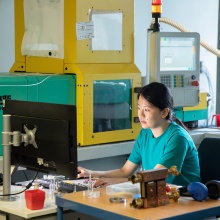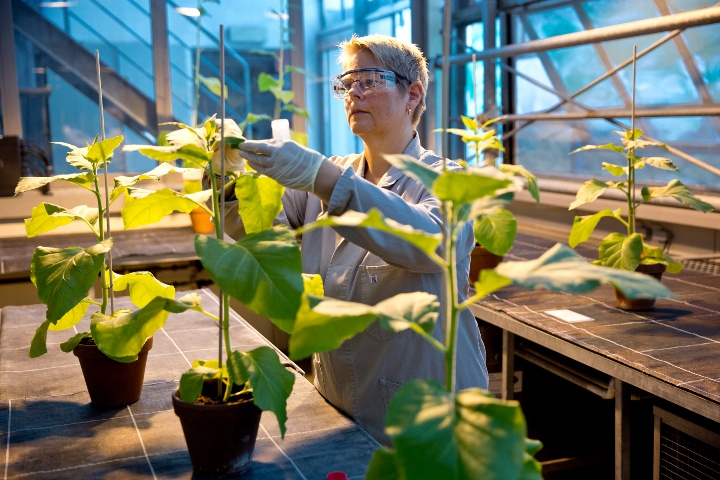Women are still underrepresented in science. Only one third of all employees employed globally in this field are female (source: UNESCO Science Report). In Germany, this figure is slightly lower at 31 percent (source: Destatis). The proportion of women is particularly low in STEM subjects.
At the University of Stuttgart, the focus on technical subjects also makes itself noticeable in the proportion of women: From a total of 270 professors, only 35 are women, while among academic employees, the ratio is one woman to three men, and even among the students there are twice as many men as women in the STEM subjects.
Equal opportunities in science
With the aim of highlighting women's contributions to solving societal challenges, female scientists at the University of Stuttgart will be introducing themselves in short video clips and providing insights into their fascinating fields of work. In each of the videos, each interviewee's passion, and joy for their respective areas of research is clear to see - and also how diverse scientific work can be. The films were created as part of the project "Pooling - Synergies for Equal Opportunities in Research Associations", a collaboration between DFG-funded joint research projects at the University of Stuttgart.
Despite their passion and enthusiasm for research, many women leave science, especially after earning their doctorate. There are many reasons for this: Difficulties in balancing family life with science, uncertain prospects, or their partner's career. The collaborative research projects that have joined forces in Pooling accompany female scientists in the early phases of their careers.
Supporting early-career researchers - free from gender stereotypes
To get girls aged from 10 to 17 interested in STEM subjects, numerous scientists organize a wide range of activities for Girls' Day, which will take place this year on April 27, 2023. Such events offer initial insights into STEM subjects, and offer the chance to gain spractical experience in the fields of natural science and technology.
High school girls also have the opportunity to get a taste of university life with the "TryScience" program. Here, they can attend workshops in the spring and fall to learn about the university's STEM programs.
If you would like to learn more about projects focusing on women/girls at the University of Stuttgart for a more equal and diverse future, you can find more information here:
- Laboratory for school students
- Girls' Day
- TryScience
- Mentoring program for school students
- Mentoring programs for female students
- Partnerships in the Femtec Network
- Qualification opportunities especially for young female scientists, as part of the university's pooling strategy.
- Support with balancing studying or a career with family life
- Working groups for Accessibility and Education and Social Inequality
- Offerings on Diversity in teaching
Making a crucial contribution to global economic development
The United Nations General Assembly first decided to hold an International Day of Women and Girls in Science on December 22, 2015. This day is celebrated annually on February 11 and is intended to commemorate the critical role that girls and women play in science and technology. At the international level, UNESCO and UN Women organize this annual event in cooperation with partners and wider society.
Gender equality has always been a central issue for the United Nations. Gender equality and the empowerment of women and girls will make a critical contribution not only to global economic development, but also help ensure that progress is made on all the goals and targets of the 2030 Agenda for Sustainable Development [en].
We can all do our part to unleash our world’s enormous untapped talent – starting with filling classrooms, laboratories, and boardrooms with women scientists.
UN Secretary-General António Guterres, un.org



